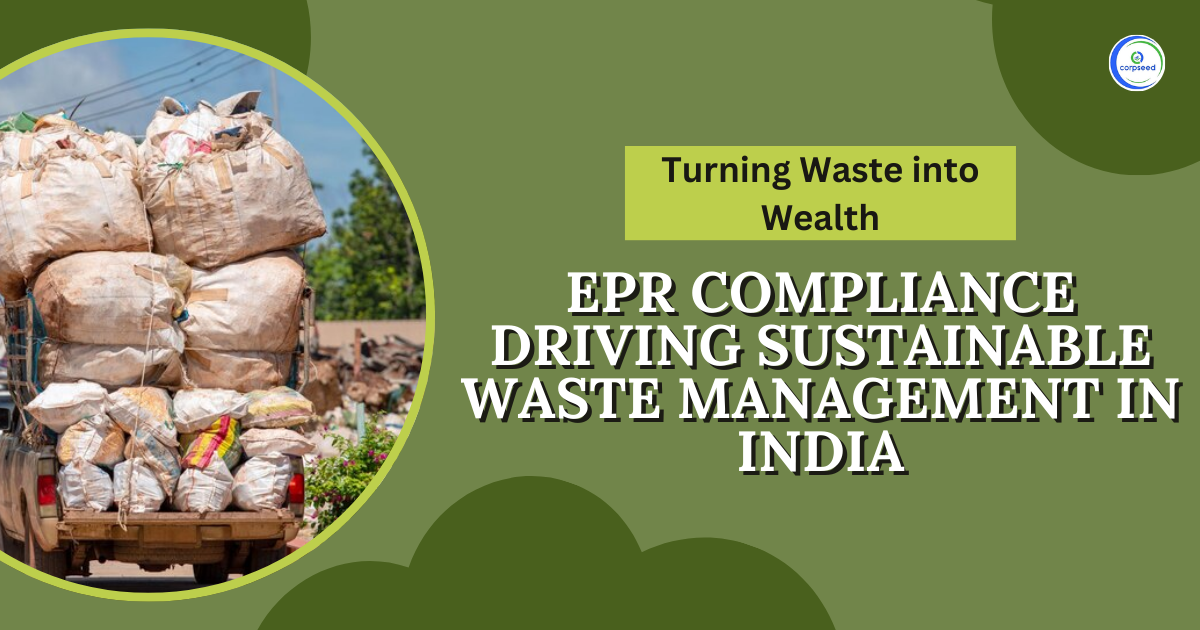In recent years, the world has become increasingly aware of the environmental impact caused by improper waste disposal and lack of recycling. The Indian government is addressing this issue with the introduction of the Extended Producer Responsibility (EPR) rules for non-ferrous metals. The new framework aims to ensure that manufacturers, recyclers, and other stakeholders are accountable for the lifecycle of their products. Under the 2025 Hazardous Waste Management Amendment Rules, these provisions cover essential aspects such as recycling, certification, and environmental compensation. By mandating proper waste management and recycling practices, the government aims to reduce pollution, promote sustainability, and help foster a circular economy.
Table of Contents
- What are the Hazardous Waste Management Rules, 2025?
- Provisions of EPR Rules for Non-Ferrous Metals
- Responsibilities Covered Under EPR Rules for Non-Ferrous Metals
- Responsibility of Producer for Recycling of Scrap of Non-Ferrous Metal
- Environmental Compensation for EPR Rules for Non-Ferrous Metals
- Extended Producer Responsibility (EPR) Obligation for Producers of Non-Ferrous Metals
- Importance of EPR Rules for Non-Ferrous Metals
- Conclusion
--------------Blog Contact Form-------------
What are the Hazardous Waste Management Rules, 2025?
The Hazardous and Other Wastes (Management and Transboundary Movement) Amendment Rules, 2025 introduce stringent guidelines for Extended Producer Responsibility (EPR), focusing on the recycling and management of non-ferrous metals in India. These rules, set to come into force by April 2026, require manufacturers, producers, and recyclers to register with the Central Pollution Control Board (CPCB) and comply with specific EPR targets for non-ferrous metal products. Key provisions include mandatory recycling obligations, certification processes for recyclers, and the use of an online portal for registrations and transactions. The EPR for non-ferrous metals will drive the country towards more sustainable practices, with set recycling targets increasing over the years, from 10% in 2026 to 75% by 2033. Additionally, manufacturers are required to use recycled materials in new products, promoting non-ferrous metal recycling in India. Strict penalties for non-compliance, including environmental compensation, will ensure adherence to these regulations.
Provisions of EPR Rules for Non-Ferrous Metals
The Extended Producer Responsibility (EPR) Rules under the Hazardous and Other Wastes (Management and Transboundary Movement) Amendment Rules, 2025 have been developed to set clear standards for non-ferrous metals' recycling and management. The provisions cover a wide range of areas, including definitions, registration processes, and the certification system.
1. Definitions
In these rules, unless the context otherwise requires, -
a. “bulk consumer” means any entity using at least one thousand tons of non-ferrous metal products , at any point of time in the particular financial year, and includes e-retailer,
b. “business” means any activity of production, manufacturing, recycling, treatment and disposal, sale or import of products made of non-ferrous metals or refurbishing of products made of non-ferrous metals allowed for refurbishing,
c. “collection points” means the facility where the registered collection agent would collect the scrap of non-ferrous metals,
d. “collection agent” means a person or entity that collects scrap of non-ferrous metals,
e. “end-of-life” of the product means the time when the product including refurbished products is no longer used for the intended purpose,
f. “environmentally sound management of scrap” means taking all steps required to ensure that scrap of non-ferrous metals are managed to protect the environment and public health against any adverse effect or loss, damage or injuries which may result during collection, storage, transportation, processing or disposal,
g. “extended producer responsibility” means the responsibility of the producer of non-ferrous metal products for meeting targets as per these rules,
h. “facility” means any location wherein the process incidental to the collection, reception, storage, segregation, recycling, refurbishing, disposal and treatment of scrap of non-ferrous metals is being carried out,
i. “guidelines” means a document prepared and issued by the Central Pollution Control Board elaborating minimum requirements for achieving environmentally sound management of scrap of non-ferrous metals including its handling, collection, storage, transportation storage and its recycling,
j. “manufacturer” means a person or an entity or a company which is manufacturing any product or component or spare part of non-ferrous metals,
k. ‘‘non-ferrous metals’’ means aluminium or copper or zinc or their alloys for the purposes of these rules,
l. “orphaned products” means non-branded products of these rules, or those produced by a company which has closed its operation,
m. “portal” means the online system developed by the Central Pollution Control Board for management and implementation of these rules,
n. “product” means any product made of non-ferrous metals ,
o. “producer” means any person or entity, irrespective of the selling technique used such as dealer, retailer, e-retailer, who, -
- manufactures and offers to sell products made up of non-ferrous metals and their components or consumables or parts or spares under its own brand, using non-ferrous metals, or
- offers to sell under its brand products made up of non-ferrous metals and their components or consumables or parts or spares produced by other manufacturers or suppliers, using non-ferrous metals, or
- offers to sell imported products made up of non-ferrous metals and their components or consumables or parts or spares under their own brand or original brand, using non-ferrous metals, or
- who imports used devices or products or scrap of non-ferrous metals.
p. “recycling” means any process of melting and refining of end of life products , made of non-ferrous metals and producing value-added products or recycled metals and alloys in an environmentally sound manner and having facilities as elaborated in the standard operating procedure or guidelines specified by the Central Pollution Control Board,
q. “recycler” means any person or entity engaged in the process of recycling scrap of non- ferrous metals,
r. “recycling target” means the quantity of the scrap of non-ferrous metals to be recycled,
s. “refurbisher” means any person or entity repairing or assembling used product made of non-ferrous metals for extending its working life over its originally intended life and for same use as originally intended, and selling the same in the market as the same brand or in new brand name,
t. “standard operating procedure” means the document specified by the Central Pollution Control Board elaborating the minimum requirement of equipment and processes.
2. EPR Registration
Entities involved in the production, refurbishment, recycling, or collection of non-ferrous metals are required to register with the Central Pollution Control Board (CPCB). This registration is essential for tracking compliance with the EPR guidelines. The EPR registration process can be completed via an online portal and must be updated annually to ensure continued adherence to the rules.
3. Generation of EPR Certificate
The Central Pollution Control Board (CPCB) will issue an Extended Producer Responsibility (EPR) certificate through an online portal for registered recyclers. The certificate is generated based on the quantity of end products and a conversion factor, which is determined by the CPCB considering technologies and other relevant factors.
4. Refurbishing of Non-Ferrous Metals Product
Refurbishing non-ferrous metal products, such as aluminum components or copper wiring, is an essential part of the recycling process. A refurbishing certificate is generated once the refurbisher restores the product to a reusable condition. This certificate helps meet the producer’s recycling targets while reducing waste.
5. Transaction of EPR Certificate
Producers who are unable to meet their recycling targets can purchase EPR certificates from registered recyclers or refurbishers. However, the producer’s unfulfilled recycling targets limit the amount of certificates that can be purchased.
6. Online Portal
The CPCB has set up a user-friendly online portal for all stakeholders, where they can register, submit returns, generate EPR certificates, and track transactions. The portal offers transparency and facilitates monitoring by regulatory authorities.
7. Action for Contravention
Entities that fail to comply with the EPR rules will face penalties and other actions under the Environment (Protection) Act. These may include the imposition of environmental compensation charges and possible revocation of registration.
8. Verification and Audit
The CPCB will conduct periodic audits of registered entities to ensure compliance. The audits will verify the accuracy of EPR certificates, recycling practices, and other related reports.
9. Steering Committee
A Steering Committee will be formed to oversee the implementation of the EPR framework. This committee will include representatives from the CPCB, government ministries, and industry groups. Its responsibilities include monitoring progress, resolving disputes, and suggesting amendments to improve the system.
Responsibilities Covered Under EPR Rules for Non-Ferrous Metals
The Extended Producer Responsibility (EPR) rules for non-ferrous metals assign clear roles to various stakeholders to ensure effective recycling, waste management, and sustainable practices. Below is a detailed breakdown of the responsibilities for key entities involved in the EPR process.
- Manufacturers: Manufacturers must register with the Central Pollution Control Board (CPCB) and comply with the waste management obligations outlined in the EPR rules. They are responsible for reducing the environmental impact of their products by incorporating recyclable materials and adopting sustainable manufacturing practices. This includes designing products for recyclability and minimizing waste throughout the product lifecycle. Manufacturers play a vital role in ensuring that non-ferrous metal products are produced with minimal environmental impact.
- Producers: Producers, which include both manufacturers and importers, are required to meet specified recycling targets set forth by the EPR guidelines. They must establish waste collection systems and actively promote recycling awareness. Additionally, producers are obligated to submit half-yearly and annual reports to the CPCB detailing the quantity of scrap recycled or refurbished. By adhering to these targets, producers ensure the responsible disposal and reuse of non-ferrous metal products.
- Collection Agents: Collection agents must also register with the CPCB. They are responsible for gathering non-ferrous metal waste from consumers or businesses and transporting it to registered recyclers. These agents must maintain transparent records and submit these reports to the CPCB to track the volume of scrap collected. Their role is crucial in ensuring the proper collection and distribution of metal waste to facilitate the recycling process.
- Refurbishers: Refurbishers restore non-ferrous metal products to their usable condition, ensuring that these refurbished products meet the relevant quality standards before being reintroduced into the market. Like other stakeholders, refurbishers must register with the CPCB and submit reports on the quantity of scrap refurbished.
- Recyclers: Recyclers are pivotal in converting non-ferrous metal scrap into reusable materials. They must comply with environmental regulations and keep accurate records of their recycling activities. Annual returns must be submitted to the CPCB for verification, ensuring compliance with the EPR guidelines.
- Bulk Consumers: Large-scale consumers, such as manufacturing units, must set up systems for scrap collection and ensure that their metal waste is handed over to registered recyclers. Their active participation is key to the success of the recycling process.
- Regulatory Bodies: The CPCB oversees and regulates the EPR process, ensuring stakeholders follow the rules through audits and guidelines. State and local bodies are responsible for setting up waste collection infrastructure and supporting recycling programs within their jurisdictions. The Bureau of Indian Standards (BIS) develops and updates standards for non-ferrous metal recycling, ensuring consistency and compliance within the industry.
Responsibility of Producer for Recycling of Scrap of Non-Ferrous Metal
Here are the responsibility of producer for recycling of scrap of non-ferrous metal:
- Collection and Recycling: Producers must ensure that scrap generated from their products is collected and recycled properly.
- Registration: Producers must register with the CPCB and comply with EPR certification requirements.
- Recycling Targets: Producers must meet the recycling targets set by the CPCB. Failure to do so will result in penalties.
- Collaboration: Producers are encouraged to collaborate with recyclers and refurbishers to meet their recycling targets.
- Record-Keeping: Producers must maintain accurate records of their scrap collection and recycling activities and submit periodic reports to the CPCB.
Environmental Compensation for EPR Rules for Non-Ferrous Metals
The environmental compensation for the extended producer responsibilities for non ferrous metal includes:
- Penalty for Non-Compliance: Entities failing to meet recycling targets will incur penalties, including environmental compensation charges.
- Refund of Compensation: A percentage of the environmental compensation may be refunded if the entity complies within a specified time frame.
- Usage of Funds: The compensation funds collected will be used for environmental restoration efforts, such as cleaning up polluted sites.
- Stringent Penalties for Repeat Offenders: Repeated violations will lead to higher penalties, and repeat offenders may face the suspension of their registration.
- Refund Conditions: Compliance with specific regulations can lead to the refund of environmental compensation charges.
- Monitoring: The CPCB will monitor compensation payments and ensure that funds are utilized for the intended purposes.
- Legal Action: Entities that continuously violate the EPR rules may face legal action under the Environment (Protection) Act.
- Public Awareness: The collected funds will also be used to promote public awareness about recycling and environmental protection.
Extended Producer Responsibility (EPR) Obligation for Producers of Non-Ferrous Metals
The Extended Producer Responsibility (EPR) sets recycling targets for non-ferrous metals based on product life, as defined by the CPCB. Below is a detailed table showcasing the recycling targets for producers, importers, and new units.
| S.No. | Year (Y) | Recycling Target (by weight) |
| 1. | 2026-2027 | 10% of the quantity of products made of non-ferrous metals in year (Y-X), where ‘X’ is the average life of the product |
| 2. | 2027-2028 | 10% of the quantity of products made of non-ferrous metals in year (Y-X), where ‘X’ is the average life of the product |
| 3. | 2028-2029 | 30% of the quantity of products made of non-ferrous metals in year (Y-X), where ‘X’ is the average life of the product |
| 4. | 2029-2030 | 30% of the quantity of products made of non-ferrous metals in year (Y-X), where ‘X’ is the average life of the product |
| 5. | 2030-2031 | 50% of the quantity of products made of non-ferrous metals in year (Y-X), where ‘X’ is the average life of the product |
| 6. | 2031-2032 | 50% of the quantity of products made of non-ferrous metals in year (Y-X), where ‘X’ is the average life of the product |
| 7. | 2032-2033 and onwards | 75% of the quantity of products made of non-ferrous metals in year (Y-X), where ‘X’ is the average life of the product |
| 8. | Units established after 1st April, 2026, the extended producer responsibility obligation will start after two years and shall be as per the target prescribed above. | |
| 9. | The extended producer responsibility obligation for importers of used devices or products or scrap of non-ferrous metals in the year (Y) shall be 100 per cent of the non-ferrous metals imported in the year (Y-1). | |
Key Notes:
- Recycling Target Review: Recycling targets may be reviewed and potentially increased after the year 2033-2034.
- Product Life Determination: The average life of products made of aluminum, copper, zinc, or their alloys shall be specified by the Central Pollution Control Board (CPCB).
Importance of EPR Rules for Non-Ferrous Metals
The introduction of the new EPR rules for non-ferrous metals marks a significant move towards a more sustainable and environmentally conscious approach to waste management. These rules not only reduce the environmental impact of non-ferrous metal scrap but also promote a circular economy. By holding producers and other stakeholders accountable for the lifecycle of their products, the EPR system ensures responsible recycling and waste management. Additionally, these rules help to minimize the burden on landfills, reduce the need for virgin materials, and limit pollution caused by improper disposal practices. This holistic approach to metal waste recycling is expected to contribute to India's environmental goals and set an example for other nations striving to build a more sustainable future.
Conclusion
The new EPR rules for non-ferrous metals, introduced under the Hazardous Waste Management Amendment Rules of 2025, are a step towards a cleaner and more sustainable environment. By holding manufacturers, producers, and other stakeholders accountable for the waste their products generate, these rules aim to reduce pollution, promote recycling, and foster a circular economy. The guidelines provide clarity on registration, certification, and recycling obligations, with specific responsibilities for each entity involved. The environmental compensation system further encourages compliance, while audits and verification ensure transparency. These new rules are a crucial part of India's journey toward a more sustainable future, reducing the negative impact of non-ferrous metal waste on the environment.
This portion of the site is for informational purposes only. The content is not legal advice. The statements and opinions are the expression of author, not corpseed, and have not been evaluated by corpseed for accuracy, completeness, or changes in the law.
BOOK A FREE CONSULTATION
Get help from an experienced legal adviser. Schedule your consultation at a time that works for you and it's absolutely FREE.


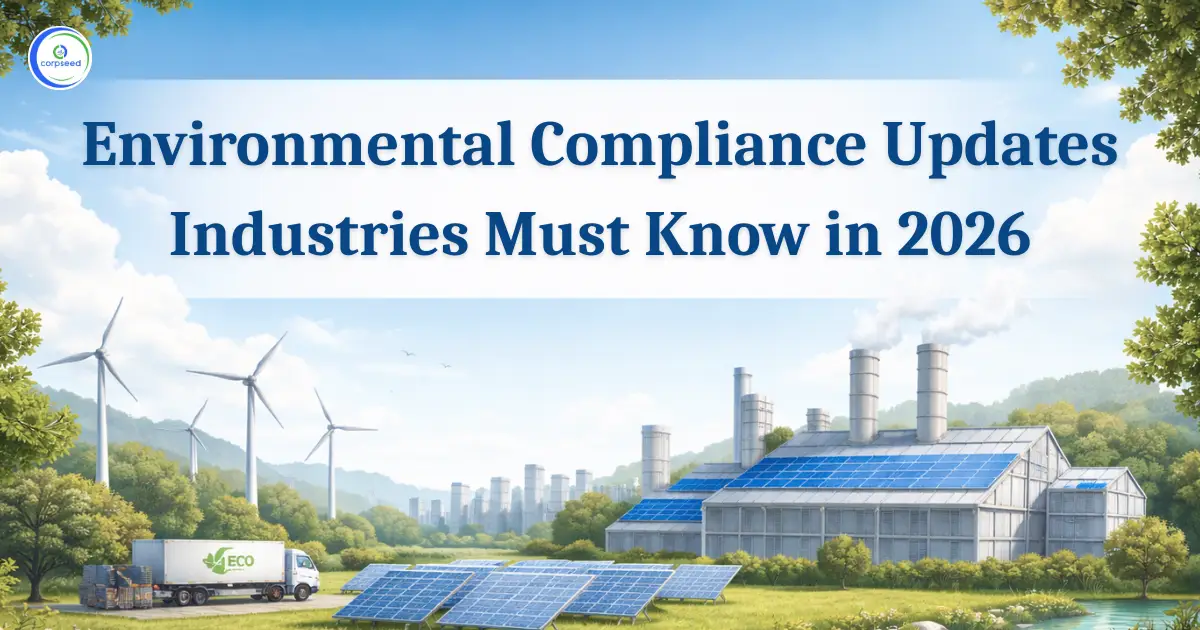
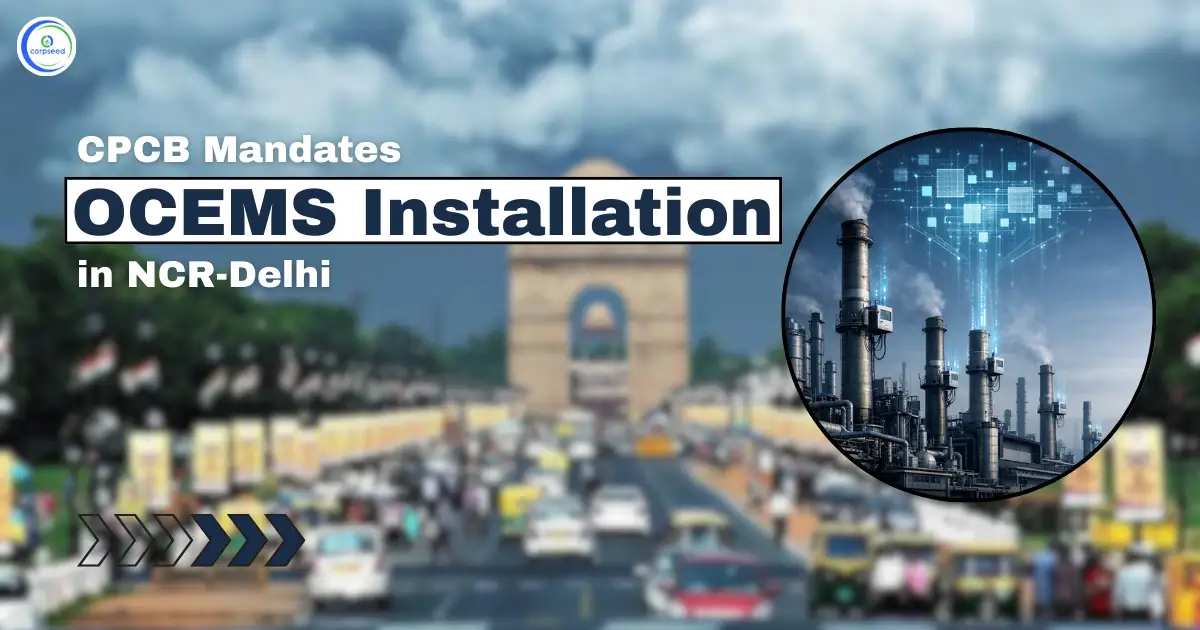
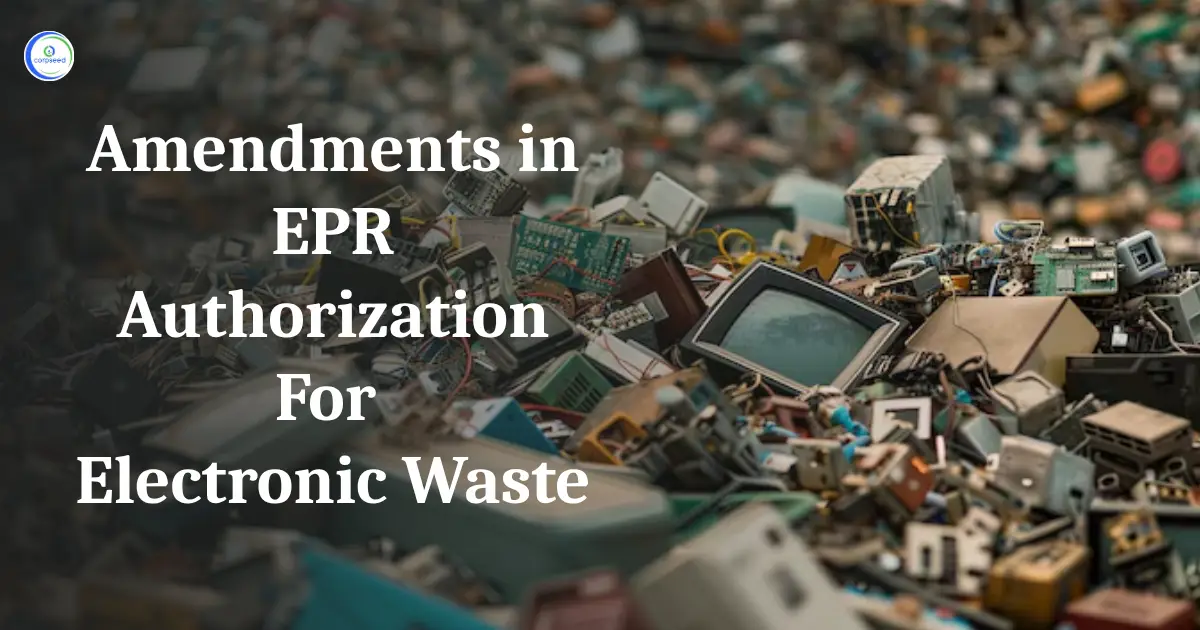
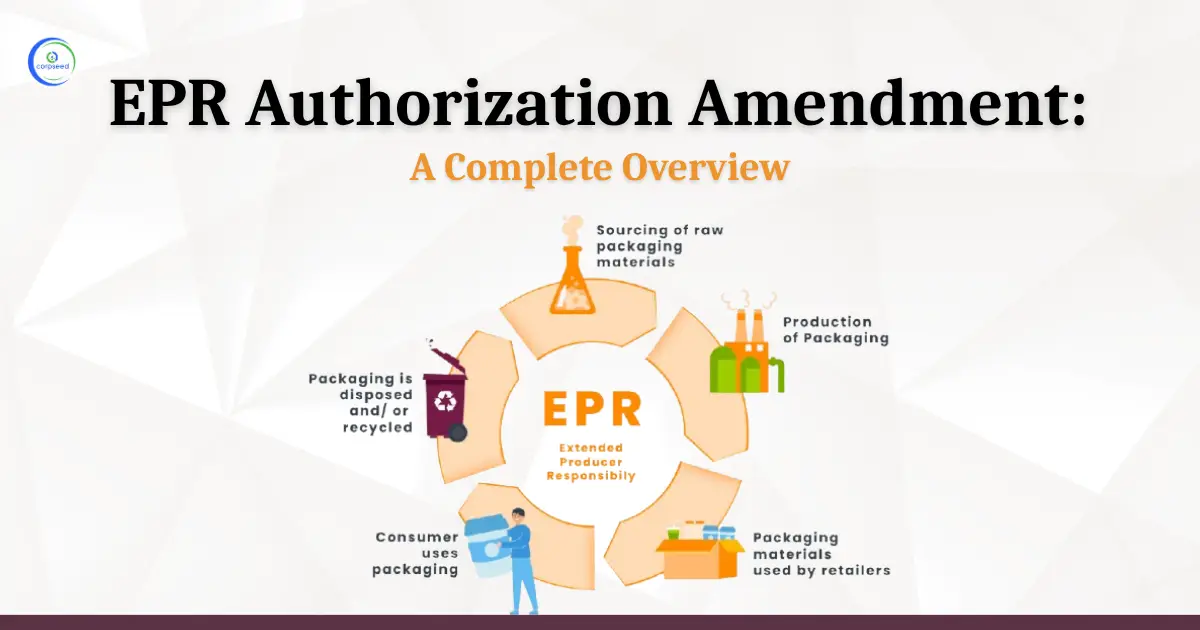
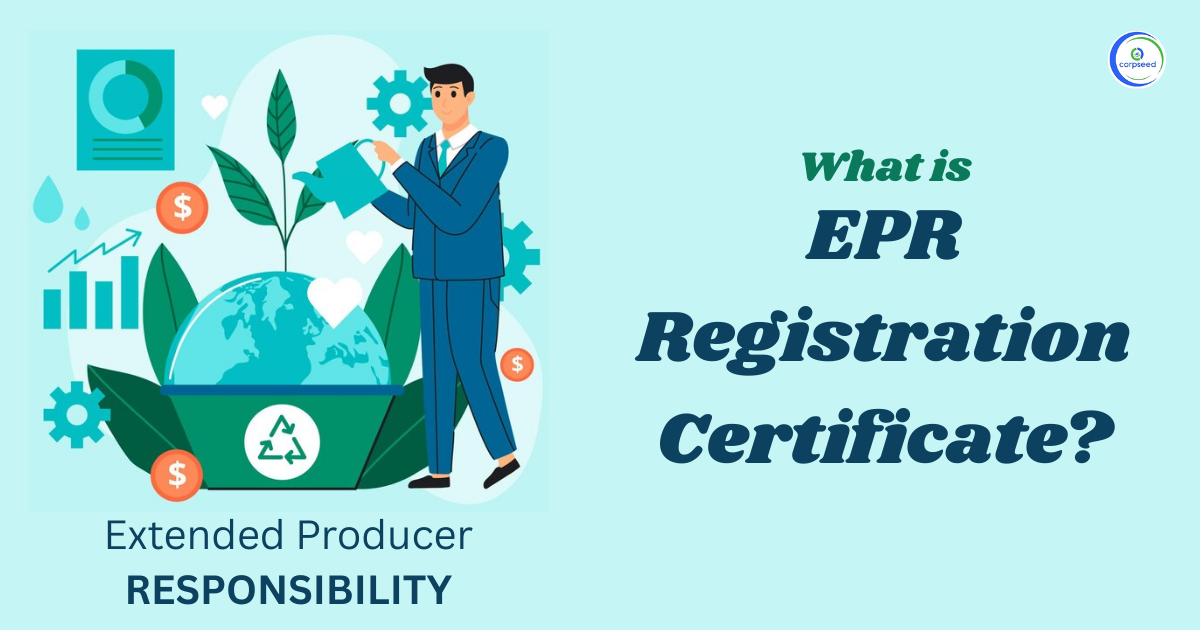
.webp)
